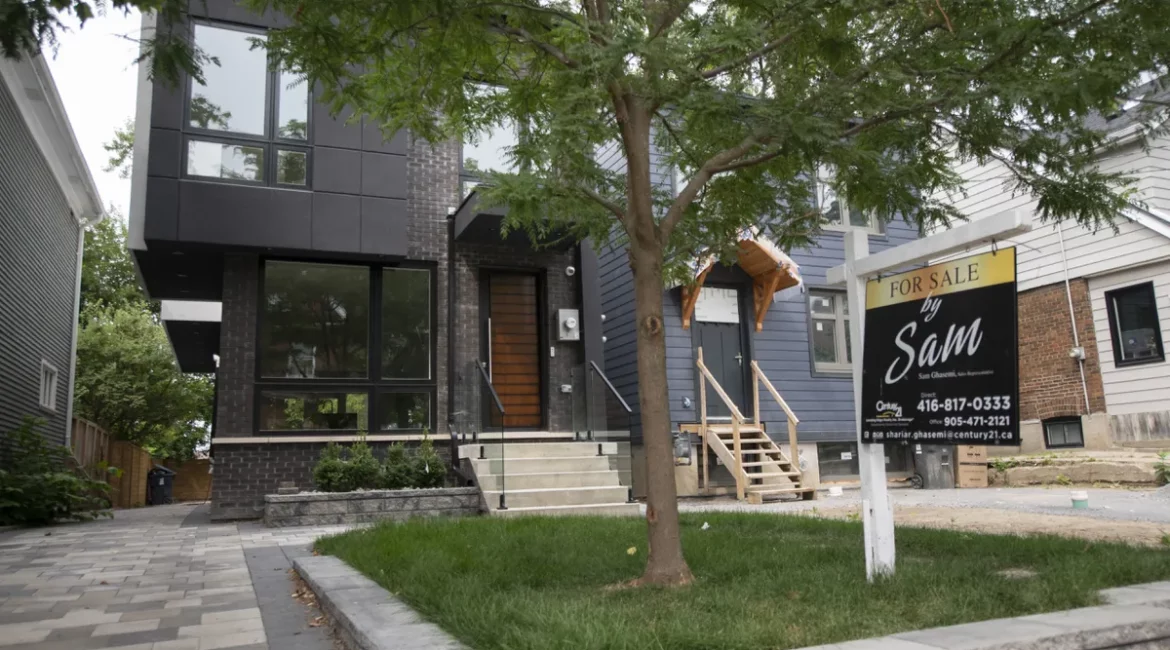The real estate market in Toronto and surrounding areas is heading into October in a state of calm, but buyers and sellers appear to have some angst about the weeks to come.
October often marks the peak of the fall market: September’s whirl of events has settled down and the traditional winter retreat in real estate is several weeks away.
Ira Jelinek, real estate agent with Harvey Kalles Real Estate Ltd., is seeing an increasing number of “opportunistic” buyers emerge after prices fell from their February peak.
Some have been looking at properties for years and years and years, he says.
“They see the market has shifted and they’re finally ready to step in,” he says.
Mr. Jelinek describes the opportunistic buyers as those who are firm with their offer but less aggressive than the extreme low ballers.
On a property with an asking price of $1.5-million, for example, an opportunistic buyer might offer $1.275-million. When Mr. Jelinek says he’ll take the offer to the seller, the buyer emphasizes that he or she is not willing to negotiate and that the offer is firm.
Listing agents often snub an unacceptable offer with a dismissive, “I don’t think this property is for them.”
New properties landed on the market in September, but inventory was light compared with some previous years.
Mr. Jelinek notes that parents were busy getting children back to school and signed up for fall activities. In some areas of midtown, he expects more listings to land on the market following the Jewish holidays of Rosh Hashana and Yom Kippur.
“A lot of people wait until the holidays are over,” he says. “I have clients that are holding off until October.”
When the time comes to set an asking price, Mr. Jelinek shows sellers recent sale prices for comparable properties, he says. In a declining market, they should not expect to exceed those recent benchmarks.
Unrealistic sellers, however, face the risk of the property becoming stale if they go through a series of reductions, he points out.
“It can sometimes lead to death by 1,000 slashes. It’s not fun to go down that path,” Mr. Jelinek says.
In an unforgiving market, by the time the sellers realize they’re not getting the $1.5-million they were aiming for, they may find the $1.3-million they could have received has slipped to $1.2-million, he points out.
Farah Omran, economist at Bank of Nova Scotia, says the national market – heavily tilted in favour of sellers in the past – is now in balanced territory. The recalibration in the housing market has so far been a reasonably orderly and welcome process, in Ms. Omran’s opinion.
According to the Canadian Real Estate Association, the national average sale price in August stood at $637,673 after hitting a high water mark of $816,720 in February.
Higher mortgage rates and other factors have led to less demand for homes, Ms. Omran says, pointing to buyers who advanced their plans to buy in 2021.
She expects housing markets across the country to continue to moderate into next year.
“The speed at which the moderation is occurring might seem alarming right now,” she says, but once attitudes adjust, she predicts a less disquieting pace of adjustment.
Tanya Rocca, agent with Royal LePage Burloak Real Estate Services, says an increase in inventory is giving buyers more selection in the Burlington, Ont., area, but many are still hesitant.
A flurry of sales at the end of August gave way to a more steady pace in September, she says.
According to the Realtors Association of Hamilton-Burlington, sales increased 11.7 per cent in August from July. Compared with August, 2021, sales fell 24 per cent.
The average price in the region was $858,405 in August, which marks a 2.3-per-cent dip from July and a 2-per-cent increase from the same month last year.
Ms. Rocca says many of the transactions in August came as buyers tried to use their pre-approved mortgage agreements before they expired and interest rates continued to rise.
Early in September, the Bank of Canada raised its key interest rate by three-quarters of a percentage point to 3.25 per cent. Bay Street economists are forecasting another hike this month.
Ms. Rocca says some buyers are waiting for a further reduction in prices but she doesn’t anticipate a large crash. So far the decrease in prices has not offset the increase in rates for most people.
“It’s not like if you wait you’re going to get some massive deal,” she says. “The problem is whether you have the ability anymore.”
Ms. Rocca points out that many buyers who purchased homes in recent years did so with gifts from family.
Some aspiring first-time buyers today may have help, but also anxiety about making mortgage payments.
“It’s one thing to have the down payment. It’s a whole other thing to carry the home,” Ms. Rocca says.
Another cohort is worried about renewing a mortgage at a higher rate when the current term is up.
“It’s a scary notion for some people.”
Ms. Rocca says many potential sellers have a negative mindset when they hear that prices have dropped between 25 and 30 percent over the past six months. But the market had an unsustainable run-up with a gain of about 60 percent in some areas over the past couple of years.
Many sellers are accepting that giving up some of the gains isn’t so bad given the longer-term appreciation, she says.
“They’re calling because they want to talk. They want to understand what’s going on,” she says. “They are making plans.”News
News Source: The Globe and Mail

